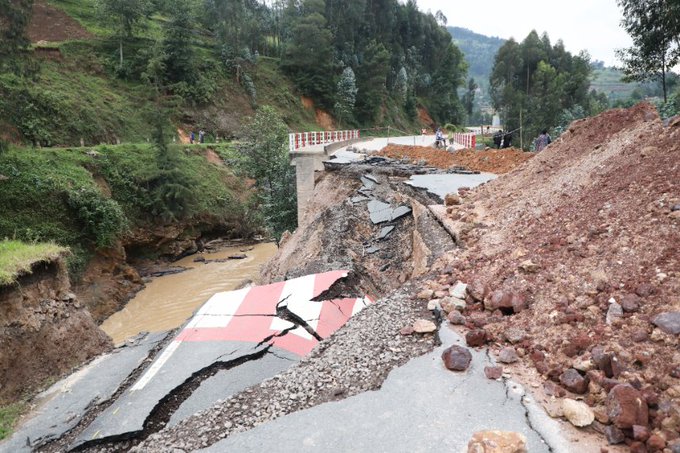
The Executive Board of the International Monetary Fund (IMF) concluded the Article IV consultation, completed the second reviews of Rwanda’s Policy Coordination Instrument (PCI) and arrangement under the Resilience and Sustainability Facility (RSF), and approved a new 14-month Stand-by Credit Facility (SCF) arrangement. The Board’s decisions allow for an immediate disbursement of SDR 36.97 million (equivalent to about US$ 49.49 million) under the RSF and SDR 66.75 million (equivalent to about US$ 89.35 million) under the SCF. The PCI and RSF arrangements were approved on December 12, 2022, the latter with a total amount of SDR 240.3 million (about US$ 321.66 million or 150 percent of quota), and the first reviews were completed on May 24, 2023.
Rwanda’s economic growth remained robust, but macroeconomic imbalances have intensified. Policy space to advance developmental objectives has been constrained by diminished policy buffers and repeated droughts and the severe floods in May 2023. Headwinds from the war in Ukraine, tightening of global financial conditions, consecutive weak agricultural seasons, and the structural decline of external concessional financing have put pressure on the level of international reserves. While the recalibrated policy mix is expected to rebuild external buffers, curb inflation, and improve debt sustainability, growth is likely to moderate from 8.2 percent in 2022 to 6.2 percent and 6.6 percent in 2023 and 2024, respectively, partly related to continued fiscal consolidation and tight monetary and exchange rate policies. The balance of risks to the outlook remains tilted to the downside, as further deepening of geopolitical fragmentation, another spike in global energy, food, and fertilizer prices, a steeper decline in trading partners growth, or a funding squeeze would weigh on the outlook.
Despite the challenging environment, macroeconomic policy performance remained broadly in line with program objectives under the PCI. Progress on the climate agenda under the RSF arrangement remains exceptionally strong. To demonstrate their unwavering commitment to the RSF-supported climate agenda and to fully capitalize on the catalytic effect of the RSF, the authorities decided to accelerate the implementation of the originally agreed reform measures and enhance the reform agenda by introducing new measures, including the implementation of an internationally recognized green taxonomy. The current PCI will remain the main policy framework to support the authorities’ medium-term policy objectives. The SCF arrangement will focus on recalibration of the near-term policy mix.
Executive Board Assessment
At the conclusion of the Executive Board’s discussion, Mr. Bo Li, Deputy Managing Director, and Acting Chair, made the following statement:
“The Rwandan authorities are to be commended for their commitment to macroeconomic stability and strong performance under the Policy Coordination Instrument (PCI) and the Resilience and Sustainability Facility (RSF) arrangement, despite compounding shocks including the floods in May 2023. While economic activity remained robust, macroeconomic imbalances have intensified, reducing the room for policy maneuver. Implementing an appropriate and carefully calibrated policy mix under the new Stand-by Credit Facility (SCF) is key to rebuilding buffers and safeguarding macroeconomic stability.
“A temporary fiscal relaxation will help cushion the effects of the recent floods, but a decisive and balanced fiscal consolidation remains necessary in the medium-term. Comprehensive tax reforms and spending rationalization remain essential to help achieve developmental and social objectives, deliver on the ambitious climate agenda, and maintain the debt trajectory on a sustainable footing. Continued efforts to strengthen public financial management and investment frameworks should also remain a priority.
“Proactive and data-driven monetary policy actions, and continued exchange rate flexibility are needed to contain inflationary pressures and preserve external stability. Maintaining an appropriately tight monetary policy stance would be necessary to durably bring inflation back to the target. Further policy tightening would be needed should internal or external pressures accelerate. Enhancing the FX intervention framework, strengthening communication, and implementing reforms to deepen financial and government securities markets will improve the effectiveness of the interest rate-based monetary policy framework.
“Rwanda’s commitment to building a resilient and greener economy is commendable and should be sustained. Enhancing social protection programs, improving human capital accumulation, and promoting private sector-led economic diversification will be critical to navigate challenging times and advance living standards. Maintaining the momentum on RSF-supported climate-related reforms—including green taxonomy—will help close adaptation gaps and increase resilience to climate-induced shocks. At the sidelines of the COP28 UN Climate Change Conference in Dubai, the Rwanda Climate Finance Partnership, consisting of various multilateral and bilateral donors convened by the RSF, has demonstrated its ability to catalyze additional climate finance and promote collaborations between the public and private sectors.” (End)
